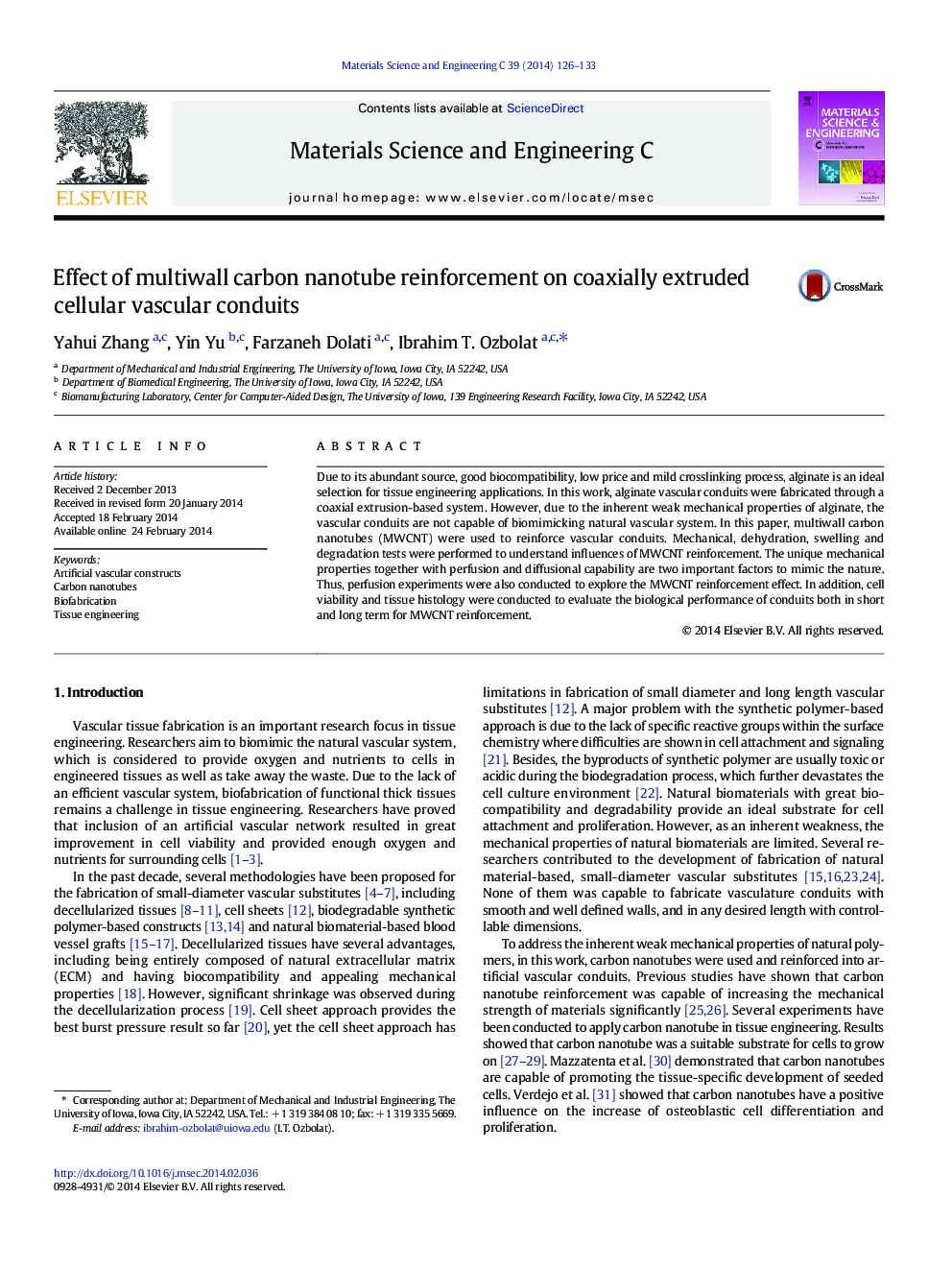| Article ID | Journal | Published Year | Pages | File Type |
|---|---|---|---|---|
| 1428773 | Materials Science and Engineering: C | 2014 | 8 Pages |
•Multiwall carbon nanotubes (MWCNTs) were reinforced in vascular conduits.•Improved mechanical properties were obtained with MWCNT reinforcement.•Dehydration, swelling, degradation and perfusion tests were performed.•Cell viability was not affected in short term when MWCNTs were reinforced.•Tissue histology showed less matrix deposition in MWCNT-reinforced conduits.
Due to its abundant source, good biocompatibility, low price and mild crosslinking process, alginate is an ideal selection for tissue engineering applications. In this work, alginate vascular conduits were fabricated through a coaxial extrusion-based system. However, due to the inherent weak mechanical properties of alginate, the vascular conduits are not capable of biomimicking natural vascular system. In this paper, multiwall carbon nanotubes (MWCNT) were used to reinforce vascular conduits. Mechanical, dehydration, swelling and degradation tests were performed to understand influences of MWCNT reinforcement. The unique mechanical properties together with perfusion and diffusional capability are two important factors to mimic the nature. Thus, perfusion experiments were also conducted to explore the MWCNT reinforcement effect. In addition, cell viability and tissue histology were conducted to evaluate the biological performance of conduits both in short and long term for MWCNT reinforcement.
